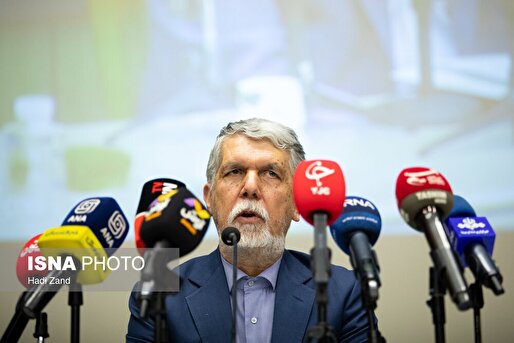Punitive and racist: Denmark's immigration system is no model for the UK
Punitive and racist: Denmark's immigration system is no model for the UK

After months of violent anti-immigration protests in front of asylum hotels in the UK, Home Secretary Shabana Mahmood unveiled her asylum reforms last week. She admitted taking inspiration from Denmark's refugee policies.
Why Denmark?
Denmark has a global image as a social democratic, progressive, egalitarian welfare state - earning top points from left-centre liberals. At the same time, the country has some of the harshest and explicitly racist migration and border policies in the global North - winning the hearts of the far right.
How can this contradiction exist?
My research on the Danish welfare state shows a long, historically grounded progression towards a racially stratified system.
It is a system that explicitly aims to eradicate "non-western" migration and asylum and significantly limit the political voice of non-westerners by having Europe’s harshest citizenship process.
A nationalistic rhetoric
Global South migration in Denmark started with the "guest worker" schemes in the 1960s-70s.
By 1973, with a looming financial crisis, Denmark closed this window, hoping migrants would leave. They did not; instead, they established communities across Denmark’s major cities.
Refugees arriving in the 1980s and 90s entered a labour market shifting away from unskilled work, leaving them with few opportunities.
There was little room for social mobility for precarious migrant workers as well as the newly arrived refugees.
These were increasingly marginalised in public housing estates around major cities. The 1990s saw a shift from offering humanitarian protection to people fleeing civil wars in Somalia, Lebanon, Bosnia, and Iraq to framing Muslim migrants as "un-integratable" and linked to so-called "housing ghettos".
In the past 25 years, this political discourse transformed into legislation and policies with an increasingly nationalistic rhetoric pushing social policy reform.
The universality of the Danish welfare state eroded, turning welfare into something for "us" and not "them", fuelling a racialised moral panic about Global South migration, particularly from Muslim-majority countries.
By distinguishing between western and non-western residents in national statistics, Denmark made the racial logic in its political rhetoric unmistakable.
This shift from inclusive universal welfare to punitive, exclusionary migration policy has been a bipartisan project with minimal disagreement across the political spectrum.
Ghetto policies
For many years, Denmark has been headed towards an increasingly racist migration and asylum policy affecting social services, housing, healthcare, education, and municipal politics.
It is an anti-Global South migration discourse that seeps through "ghetto" policies from 2018 focused on eradicating public housing with a majority of non-western residents; citizenship application procedures making it more difficult for non-westerners to become naturalised citizens; and a criminal justice system focused on deportations whenever possible.
For many years, Denmark has been headed towards an increasingly racist migration and asylum policy affecting social services, housing, healthcare, education, and municipal politics
In line with this political direction, in 2019, the Social Democratic government introduced a reform in asylum policies, shifting the focus from integration of refugees to repatriation.
In the years preceding this shift, Denmark had already introduced several policies to make life difficult for refugees. It opened deportation centres for rejected asylum seekers that could not be sent to their countries of origin.
Instead, they are housed in former prisons and military bases turned into deportation centres. These centres are managed by the police, who are charged with monitoring curfews and other restrictions on the refugees’ lives.
If a resident misses too many curfews, they risk a prison sentence for up to four months. A refugee with no prior convictions is thus criminalised. This creates a legal system where refugees are under a different set of criminal law than the rest of the population.
The deportation centres are thus carceral institutions rather than shelters.
As part of the paradigm shift in 2019, Denmark reduced the residency timeframe to a two-year period after which the claimant must undergo a review of their refugee status.
In 2021, Denmark was the first country to revoke the refugee status of Syrians, particularly women and elders, claiming that it was safe for them to return.
Most of these cases have since been rejected by independent judicial review; however, the intended effect - fear and uncertainty - has increased feelings of precarity and instability.
The 2019 paradigm shift saw a significant reduction in monthly benefits for refugees, making it difficult for especially refugee families to manage daily expenses, thus increasing poverty.
Though Denmark presents itself as an egalitarian country, its immigration policies operates on an ethno-supremacist logic that differentiate between desirable and undesirable refugees
This was further entrenched in 2025, when the government introduced a policy which ensures that benefit recipients who have lived in the country for less than nine years and have not worked at least two and a half years must work to receive their benefits.
This is an apartheid employment system in the making, which promotes a labour-for-benefits rather than labour-for-wages system, directly disadvantaging non-western migrants.
Emerging findings from my recent research on the infamous Danish ghetto policies shows how, prior to this legislation, many migrants lived in public housing communities that offered informal support systems and helped newly arrived refugees develop a sense of home and community.
These communities have been essential lifelines for migrant settlement. However, with a policy of dispersal, refugees are now given housing far from racialised communities to supposedly immerse them into (white) Danish culture and prevent them from developing “parallel societies”, which is part of the government rhetoric of racialised communities being a threat to Danish social cohesion.
This further marginalises them while having to deal with increased precariousness, political vilification, and insecurity about their future.
Labour emulating racist policies
Though Denmark presents itself as a progressive and egalitarian country managing "integration challenges", its immigration policies operates on an ethno-supremacist logic that differentiate between desirable and undesirable refugees.
A clear example is the fast-track scheme for Ukrainian refugees, who were granted immediate access to housing, work, and schooling under a separate legal framework.
These privileges are systematically denied refugees from the Global South.
The Danish paradigm shift has exacerbated the marginality of refugees, increased their criminalisation, and restricted their access to benefits.
Refugees - including children - in Denmark must contend with a life of temporality and great insecurity. They are socially and economically disenfranchised from society; this is a politically intentional disenfranchisement.
While refugees in Denmark are vilified and ostracised through dehumanising rhetoric, it is clear how these policies spill over to target racialised communities in general, from increased policing, punitive measures in benefits, and barriers in healthcare, housing, and schooling.
Denmark’s racist immigration policies are symptomatic of a xenophobic and racist European climate.
This trend throughout Europe is having a detrimental effect on centrist parties as they scramble to win over voters by adopting far-right talking points.
The Labour government in the UK is obediently following suit.
It is interesting to note, however, that Britain is not seeking to emulate Denmark’s universal welfare structures to equalise class inequalities through free higher education, affordable not-for-profit public housing, and free decent healthcare (most of which are slowly being eroded through obscured neoliberal policies).
Rather, the UK is looking to emulate Denmark for its dehumanising racist immigration legislation.
Denmark, alongside the UK and the rest of Europe, is adopting explicitly racist systems which make it increasingly difficult to contest the dehumanisation of racialised communities, particularly immigrants and Muslims.
The views expressed in this article belong to the author and do not necessarily reflect the editorial policy of Middle East Eye.













